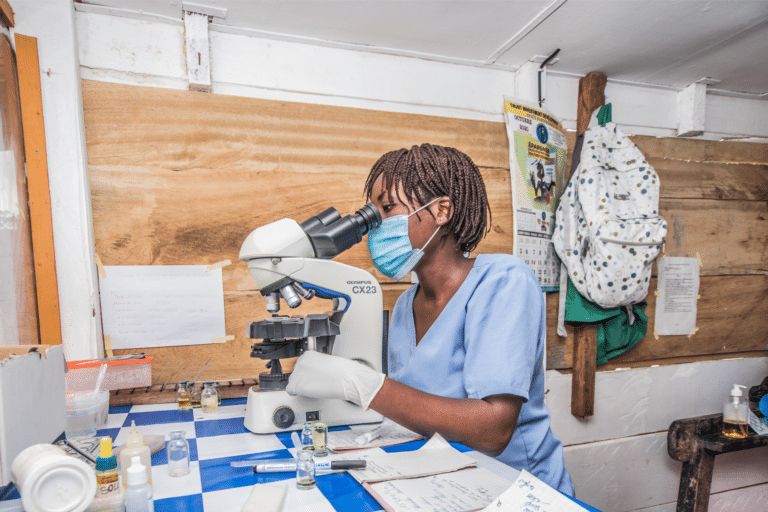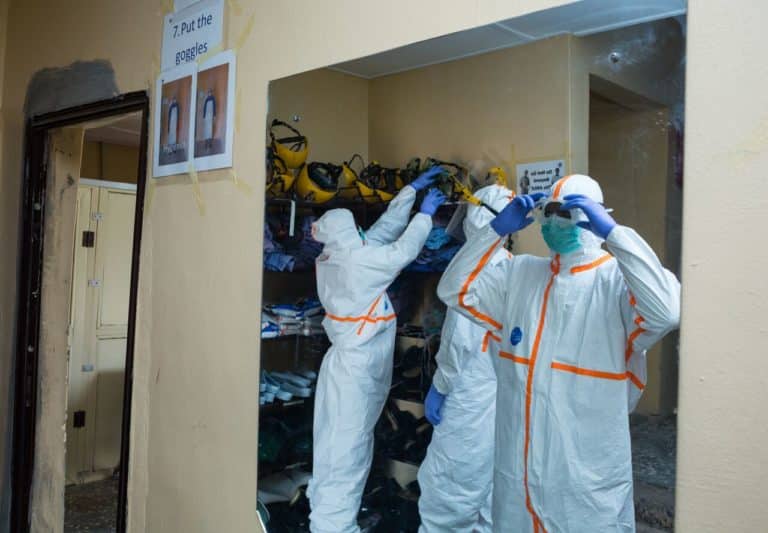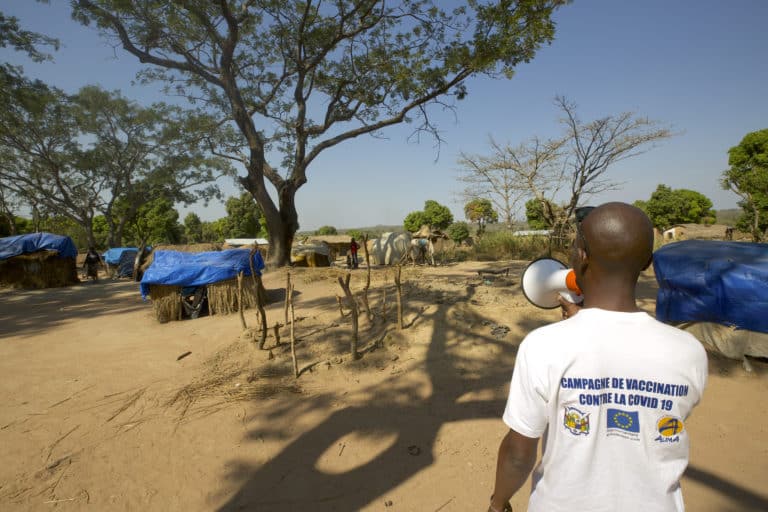Since the beginning of the pandemic, many African countries are facing challenges related to a significant increase in oxygen requirements: assuring the supply of oxygen to care for patients suffering from severe forms of the coronavirus, while still struggling with high rates of respiratory diseases among children.
This is why ALIMA (The Alliance for International Medical Action) and its partners work closely with Ministries of Health in sub-Saharan Africa to provide and propose the most-adapted, sustainable and innovative solutions to improve access to medical oxygen. More specifically, ALIMA supports medical care by providing equipment, medications, human resources and technical expertise that train health care workers on how to use medical oxygen, maintain equipment and manage the oxygen equipment supply chain.
“Indeed, if access to medical oxygen has always been a privilege worldwide, the COVID-19 pandemic has only increased the great disparity in access to this product around the world,” says Antoine Maillard, Hospital Pharmacist for ALIMA. “Medical oxygen is a life-saving and effective essential medicine to care for not only COVID-19, but also several other illnesses, such as pneumonia, which is the world’s biggest infectious killer of adults and children.”
Oxygen is also necessary for surgical procedures, as well as for maternal and child health care, where significant efforts are still needed to further reduce maternal and child mortality.
But decades of underinvestment in preventing, diagnosing and treating respiratory diseases have left most countries with health systems lacking the right equipment, medicines and qualified staff. Even before the pandemic, barely half of the oxygen needs were met in most middle- and low-income countries.
“It is urgent to improve access to oxygen,” says Marine Vignon, head of ALIMA’s AIRE (Improving the Identification of Respiratory Distress in Children) project. “It is also essential to better detect respiratory infections.”
To help improve the diagnosis of respiratory infections, ALIMA implements the use of pulse oximeters in 202 health centers in Mali, Burkina Faso, Niger and Guinea, as part of the AIRE project. Pulse oximeters are simple-to-use diagnostic tools that allow health workers to easily measure the oxygen saturation of a patient.
However, while diagnosis is an important first step, good oxygen availability is needed to provide better care and save more lives.
“The third wave of COVID-19 has already reached some countries and could keep spreading quickly,” said Dr. Moumouni Kinda, ALIMA’s Chief Executive Officer. “Health facilities and healthcare personnel often remain ill-prepared and under-equipped, which makes it impossible to ensure the detection and adequate care for cases. That is why we need to anticipate and assist those countries that will not be able to face it by themselves.”
Thanks in part to the Oxygen For Africa campaign, ALIMA provided oxygen for nearly 1,000 patients with COVID-19 since 2020. Our teams also treated more than 177,000 children under the age of five for acute respiratory infections.
– Cover photo: © Benita Nnachortam / ALIMA
– These activities are made possible thanks to: Unitaid, the Office of U.S. Foreign Disaster Assistance (OFDA), French Development Agency (AFD), and the Directorate-General for European Civil Protection and Humanitarian Aid Operations (ECHO).



